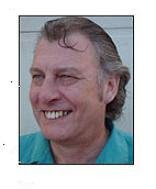 When noting that sign-language was proscribed by Franco during the early years of his dictatorship in this post I recalled the Carlos Saura movie ¡Ay, Carmela!.
When noting that sign-language was proscribed by Franco during the early years of his dictatorship in this post I recalled the Carlos Saura movie ¡Ay, Carmela!.The movie, set during the Civil War, features a mute performer among a troupe of travelling players who end up on the wrong side of the front line. It's an excellent movie and well worth watching. The slight, comic tone of the movie belies a very human dilemma and the deadly predicament faced by the players. Saura coaxes some wonderful, award winning performances from the cast (which features the excellent Carmen Maura - best known to UK and US cineastes for her collaborations with Pedro Almodóvar).
Anyway, the point is that the mute actor uses a chalkboard to communicate. (Though not because he is obliged to by martial law). There's a triple-edge being played here by the writer - José Sanchis Sinisterra. This referencing of non-verbal and non-visual language is an allusion to the voiceless masses, the brutal suppression of dissent, and the attack on Catalan.
And, when thinking about the above, my thoughts turned to Franco's fascination with the movies.
Franco feared that foreign language movies could be used to communicate coded messages to dissidents, or camouflage open exhortations to rise up against the state. Can you imagine it? Errol Flynn, mid-swashing his buckle, crying, "One for all, and all for one! No gods, no masters! Seize the day! Smash the State! Seize control!"
Conscious that his subjects needed cheer and distraction to prevent their dissatisfaction from fomenting dissent, and realising Spain's wrecked post-war economy could not support an indigeneous film industry which could compete with the US and UK film entertainment industries, Franco encouraged the importing of movies.
At first Franco insisted on watching every single imported movie in the private cinema he had built in his palace, El Pardo. A few of the big Hollywood studios offered to supply subtitled versions. Franco could not speak English. How could he then be sure the Spanish subtitles were an accurate translation of the US English dialogue?
Franco insisted on the films being dubbed, and dubbed by politically reliable producers. This spawned a huge, continuing, industry*. Today Spanish TV schedules are filled out with dubbed foreign programmes.
A similar phenomenon took place in Mussolini's Italy.
But Franco's fascination with movies extended beyond acting as chief censor - he wrote at least four screenplays. Well, in truth, he scribbled the storylines and a loyal hack wrote the scripts. Two were produced as movies: Raza (based on a novel supposedly by Franco) and another, whose title I can't recall at present, about an isolated troop of Foreign Legionnaires in the Moroccan rif who fight to the last man to defend the flag against a horde of natives.
Franco also wrote film reviews for the neswpaper ABC.
Winston Churchill knew of, and exploited Franco's almost childlike fondness for Hollywood glamour when, in 1943, he asked hearthrob Leslie Howard to undertake a secret mission. (Howard had had a passionate affair with Conchita Montenegro, a leading Spanish Hollywood star in the 30s. Montenegro was, at that time, before their marriage in 1944, having an affair with diplomat Ricardo Giménez Arnau, a senior member of the Falange and ambassador to the Holy See.)
Without advising the British Ambassador in Madrid Churchill asked Howard to arrange an audience with El Caudillo to remind him that should he (Franco) make any advance on Gibraltar, or assist any German attack on Gibraltar, then the Royal Navy would seize the Canaries and gift them to the US for use as a miltary base.
During the return flight to the UK Howards's plane was shot down by German aircraft over the Bay of Biscay. (According to Ronald Howard, Leslie Howard's son, on the orders of Goebbels, "who had been ridiculed in one of Howard's films and who believed Howard to be the most dangerous propagandist in the British service." (go here)
In 1950, during the prelude to negotiations with the US, Franco ordered the movie Raza, originally released in 1941, to be re-edited. So as not to upset his potential future supporters ("He may be a bastard, but he's one of our bastards now," Eisenhower.) Franco insisted all critical comments about the USA to be watered down and all mentions of the Falange to be excised. Metro-Goldwyn-Mayer even organised an English dubbed version for distribution in the States.
And Franco's fascination with the movies, and movie glamour, went even further. As part of a strategy to end Spain's isolation, and domestically project an image of 'normality', Franco invited a string of well-known Hollywood celebrities to visit Madrid. Franco ordered that his Hollywood guests be treated almost like visiting royalty. Sinatra, Ava Gardner and may others duly took advantage and helped put Madrid on a glamour circuit along with Rome, Paris, the French Riviera and Venice. Over 50 years later and Madrid's La Gran Vía still retains an air of shabby, faded glamour.
*My partner's son has often stated he wants to be a voice dubber (or voiceover actor as they're called in the UK) when he needs to earn a living. He practices dubbing scenes from well-known movies on his laptop using a neat bit of software. He attends dubbing conferences, and has met the actress who gives Spanish voice to Lisa Simpson and the actor who voices Brian, the dog in Family Guy (Padre de Familia).


No comments:
Post a Comment